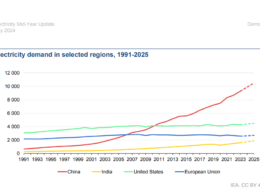Malaysians are estimated to consume 502.3 milligrams of microplastics per person daily, contributing to more than 48,000 new cancer cases each year, as reported by Utusan Malaysia. This places the country among the top 109 globally in terms of microplastic consumption.
A study conducted by China’s National University of Defense Technology (NUDT), and supported by Penang’s Batu Maung Fisheries Research Institute (IPP), revealed that significant microplastic contamination in the Strait of Malacca is partly due to the large number of people consuming fish.
In 2021, Professor Dr. Yusof Shuaib Ibrahim from Universiti Malaysia Terengganu (UMT) highlighted that humans ingest approximately 5 grams of microplastics weekly—equivalent to the size of a credit card. Plastics discarded into the ocean break down into microplastics, which are then ingested by marine life, including fish and shellfish.
Public health expert Professor Dr. Sharifa Ezat Wan Puteh from Universiti Kebangsaan Malaysia (UKM) noted that chemicals such as phthalates, bisphenol A (BPA), and polybrominated diphenyl ethers (PBDEs) from microplastics seep into water, soil, and rain, eventually entering the human body. These chemicals are linked to various health issues, including cancer and fertility problems, contributing to Malaysia’s 48,639 new cancer cases annually and a decline in total fertility rate (TFR) from 2.1 children per woman in 2010 to 1.6 in 2022.
Research has shown that microplastics, measuring 5mm or smaller, are found in seafood such as fish, shrimp, and clams. Additionally, inhaling microplastics from burning plastic can introduce them into the bloodstream and organs.
Dr. Sharifa further warned that microplastics are associated with male infertility, heart disease, fetal development issues, cancer, and blood vessel constriction due to their harmful chemicals and dyes.
According to Globocan (Global Cancer Observatory), Malaysia could face nearly 100,000 new cancer cases by 2040, with the possibility of the figure doubling. The country also recorded its lowest birth rate in 50 years in 2022, with fertility rates declining from 6.7 children per woman in 1957 to 2.1 in 2010, and further dropping to 1.6 in 2022.
In 2017, it was estimated that 51 trillion microplastic particles had been released into the world’s rivers and seas.
















